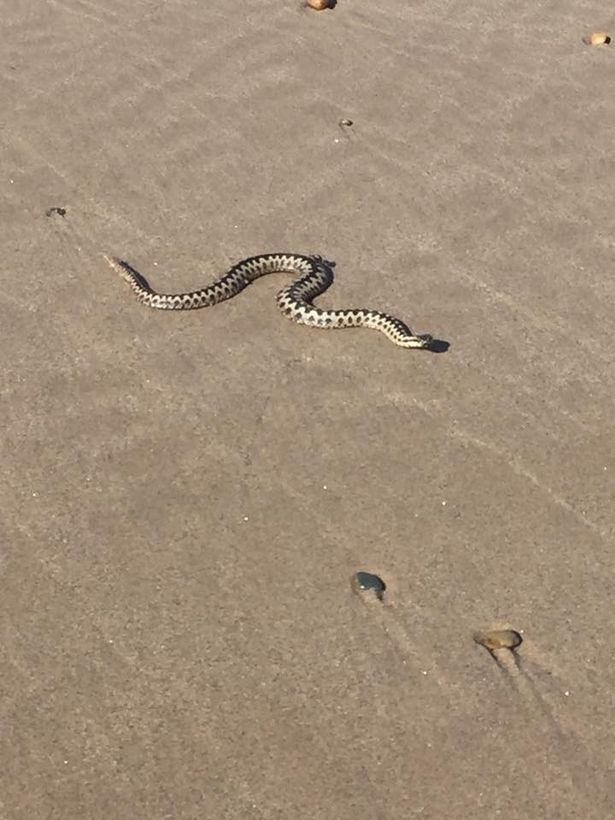Snake warning issued after adder spotted on Gwynedd beach
This adder was spotted slithering across the sand at a popular beach prompting snake experts to warn people not to approach the reptiles.
The image was taken by a woman who spotted the venomous snake at Porth Neigwl (Hell’s Mouth) near Abersoch, Gwynedd on Tuesday.
The woman, who asked not to be named saw it coming out of the sand dunes to bask in the Spring sunshine.

(Photo: UGC)
Last summer four children were bitten by venomous adders near beaches in Gwynedd and the current warm spell, which is set to last into next week, could mean there are more sightings.
The North Wales Wildlife Trust say beachgoers should keep their distance to avoid being bitten.
A spokesman for the Trust said: “It’s likely that the adders are coming out because of the warm weather.
“They’re generally not dangerous as long as people don’t play around with them.
“As long as you leave them be they won’t actively come after you.
“My advice would be to not approach them as they are generally docile creatures unless they are harrassed.”
In July 2016, eight-year-old Matthew Beetham was bitten whilst out walking with his mum near Pwllheli beach.

(Photo: Arwyn Roberts)
The youngster’s leg turned black and he spent two days in hospital following the incident.
His mother, Estelle Beetham, is now urging beach goers to be cautious after the recent sightings in the area.
She said: “Matthew was unlucky and was bitten because he stumbled backwards into a nest.
“The snakes are there and are not a threat if left alone.
“Just be aware they are there and if you do see one, be respectful and leave it to move away.
“Also be careful letting your children and dogs into the sand dunes and in long grass.

(Photo: Darren Owen)
“There’s no one to blame, he obviously disturbed the adder’s nest and the mother was just protecting her babies.”
Mrs Beetham said Matthew was violently sick and was very tired and drowsy after he was bitten.
He was rushed to Ysbyty Gwynedd where he received a dose of anti-venom and was referred for a course of physiotherapy to help his leg heal.
Adders are not usually aggressive, and are considered to be rather timid despite their reputation
Experts insist that adders will only bite as a last resort, preferring to escape into undergrowth when threatened.
People are usually only bitten after stepping on them or attempting to pick them up.
In the UK, about 100 adder bites are reported each year, most of them occurring in coastal counties.
The majority of bites occur between June and August, with the number peaking during July.
In North Wales last summer, four children were bitten by venomous adders near beaches in Gwynedd.





